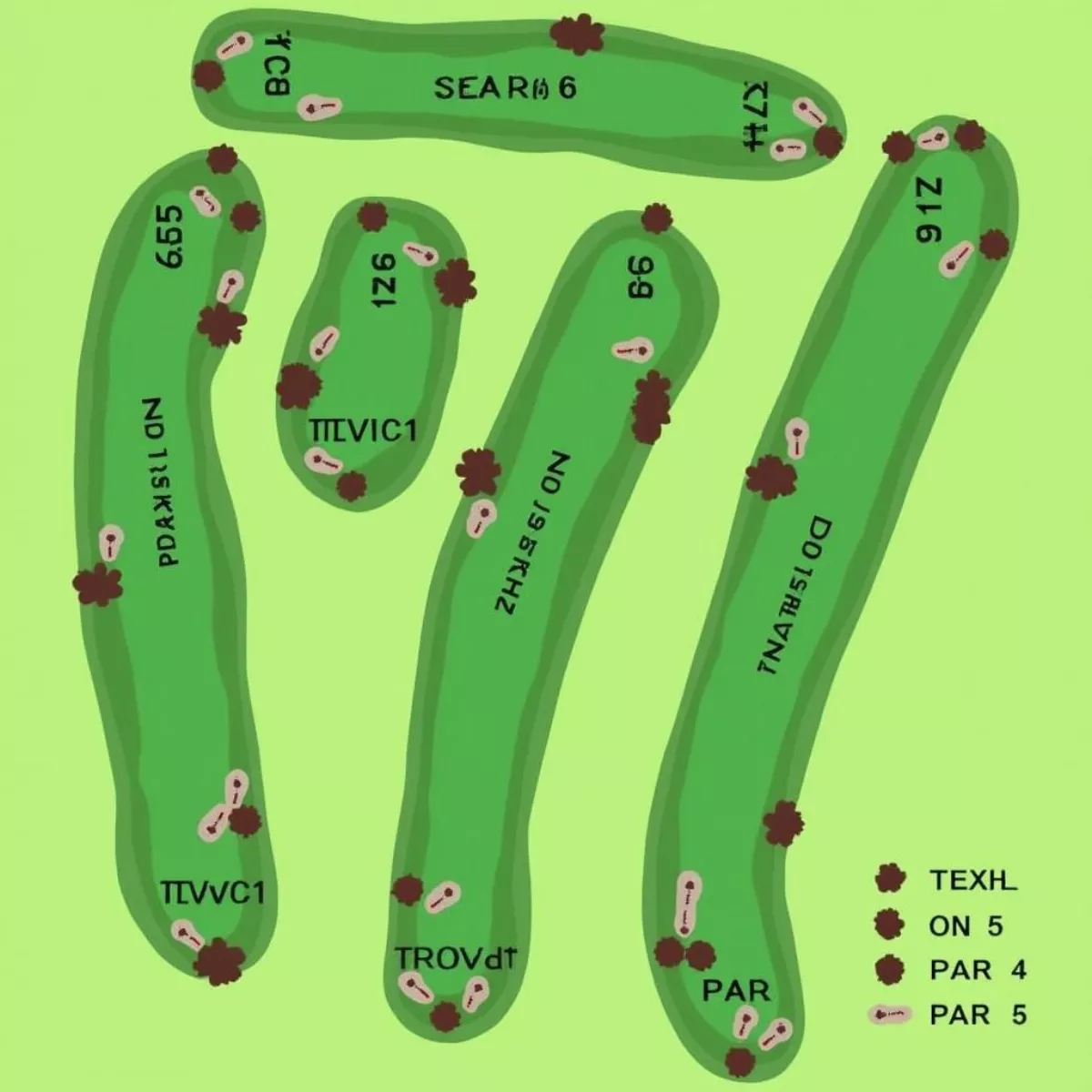When it comes to golf, one of the most common questions players, both new and experienced, often ask is, “What is a good golf score for 9 holes?” The answer can depend on various factors, including skill level, course difficulty, and even playing conditions. In this guide, we’ll unpack everything you need to know to better understand what constitutes a good score for 9 holes. So grab your clubs and let’s tee off!
Understanding Golf Scoring Basics
Par and Scoring
Before diving deep into what a good score looks like, it’s crucial to understand some basic terms in golf scoring.
- Par: This is the number of strokes an expert golfer is expected to take to complete a hole. Common par values for individual holes are 3, 4, or 5.
- Birdie: One stroke under par on a hole. For example, scoring a 4 on a par 5 hole.
- Bogey: One stroke over par on a hole. For example, scoring a 6 on a par 5 hole.
- Eagle: Two strokes under par on a hole.
Here’s a handy table for quick reference:
| Term | Description |
|---|---|
| Par | Expected score |
| Birdie | One stroke under par |
| Bogey | One stroke over par |
| Eagle | Two strokes under par |
Typical Golf Course Composition
Most golf courses consist of 9 or 18 holes. Each hole is assigned a par, usually totaling between 27 to 36 strokes for a 9-hole course.
- 9-Hole Course Example:
- 5 par-3 holes
- 3 par-4 holes
- 1 par-5 hole
The total par for this layout would usually be around 32.
 Golf course layout with par information
Golf course layout with par information
What Is Considered a Good Golf Score?
Skill Level Breakdown
Scores can vary widely based on a player’s experience. Here’s a breakdown of average scores by skill level for a typical 9-hole game:
- Beginner: 45-60
- Intermediate: 36-45
- Advanced: 27-36
- Professional: 27 or less
If you’re just starting out, scoring around 54 might feel like a significant achievement. As you hone your skills, your goal should be to lower your score progressively.
Competitiveness
In competitive settings, the scores can be relatively lower:
- Excellent performance: 28-32 strokes
- Average competition: 33-37 strokes
So if you’re aiming to compete, consider these ranges.
 Golf tournament leaderboard
Golf tournament leaderboard
Factors Affecting Golf Scores
A “good score” can be subjective based on numerous factors:
- Course difficulty: More challenging courses have tighter fairways, higher roughs, and tough greens.
- Weather conditions: Wind and rain can affect play significantly.
- Equipment: The quality of clubs and balls can impact your performance.
Having this context allows for a more informed assessment of what a good score might look like for you on a given day.
Setting Personal Goals
While it’s helpful to have general benchmarks, you should ultimately focus on your own improvement:
- Track your progress: Keep a journal of your scores over time to identify trends and areas for improvement.
- Set realistic goals: Aim to improve your score gradually. For example, if you frequently score 56, set a goal to achieve 54 within a month.
![]() Golfer tracking scores in notebook
Golfer tracking scores in notebook
Tips to Improve Your Golf Score
Here are some actionable tips to help you achieve a better score on the golf course:
- Practice regularly: Spend time at the driving range and putting greens.
- Warm-up: Always warm up before hitting the course to improve your performance.
- Focus on short game: Chipping and putting can significantly lower your scores.
- Course management: Make strategic decisions about when to take risks and when to play it safe.
- Stay relaxed: Tension can lead to poor swings. Take deep breaths and enjoy the game.
- Play with better golfers: Surrounding yourself with experienced players can help you learn faster.
Advanced Strategies to Lower Your Score
For those looking to get serious about their game, here are advanced strategies to consider:
- Analyze your rounds: Use scoring apps to break down each hole and identify strengths and weaknesses.
- Invest in lessons: Professional coaching can provide personalized feedback and accelerate your improvement.
- Mental game: Develop a strong mental approach to handle pressure situations.
Key Takeaways
- A good golf score for 9 holes generally falls within the range of 27-45, depending on skill level.
- Familiarize yourself with basic golf scoring terms: par, birdie, eagle, and bogey.
- Focus on personal improvement rather than just comparing yourself against others.
- Use practice, solid course management, and mental strategies to enhance performance.
 Close-up of a golfer's swing
Close-up of a golfer's swing
Frequently Asked Questions (FAQ)
Q1: What is the average score for a beginner golfer on 9 holes?
A1: Beginner golfers typically score between 45-60 on a 9-hole course.
Q2: What does par mean?
A2: Par is the number of strokes that an expert golfer is expected to take to complete a hole.
Q3: How can I track my golf score effectively?
A3: You can keep a scorecard during your rounds or use various golf scoring apps available online.
Q4: Does the course difficulty affect my score?
A4: Yes, more challenging courses with tougher holes will generally lead to higher scores.
Q5: Can improving my short game lower my overall golf score?
A5: Absolutely! Most strokes in golf are lost around the green, so focusing on putting and chipping can reduce your score significantly.
Q6: Should I invest in golf lessons?
A6: If you are serious about improving, investing in lessons from a qualified instructor can lead to substantial progress.
Q7: How can I manage my course strategy?
A7: Assess each hole before you play, determine the safest routes, and make strategic decisions about when to take risks.
Q8: How do weather conditions impact my golf game?
A8: Bad weather like rain or wind can affect ball flight and overall playability, potentially leading to higher scores.
Q9: Is it common to score under par on 9 holes?
A9: Yes, skilled players often aim to score under par, especially on easier courses.
By comprehensively understanding what constitutes a good golf score for 9 holes, you can set realistic expectations and progressive goals for your game. Happy golfing!

